In the bad old days, small cars felt like penalty boxes on wheels. Thankfully, you now have a wealth of top-quality compact city-friendly models to choose from.
If you're shopping for a small car, the Hyundai i10 and Toyota Aygo are two popular choices with lots of examples available as affordable used cars.
We'll compare these chic city slickers to help you pick the one that suits you best.
Hyundai i10 vs Toyota Aygo compared
| Hyundai i10 | Toyota Aygo |
Pros:
| Pros:
|
Cons:
| Cons:
|
Styling and design
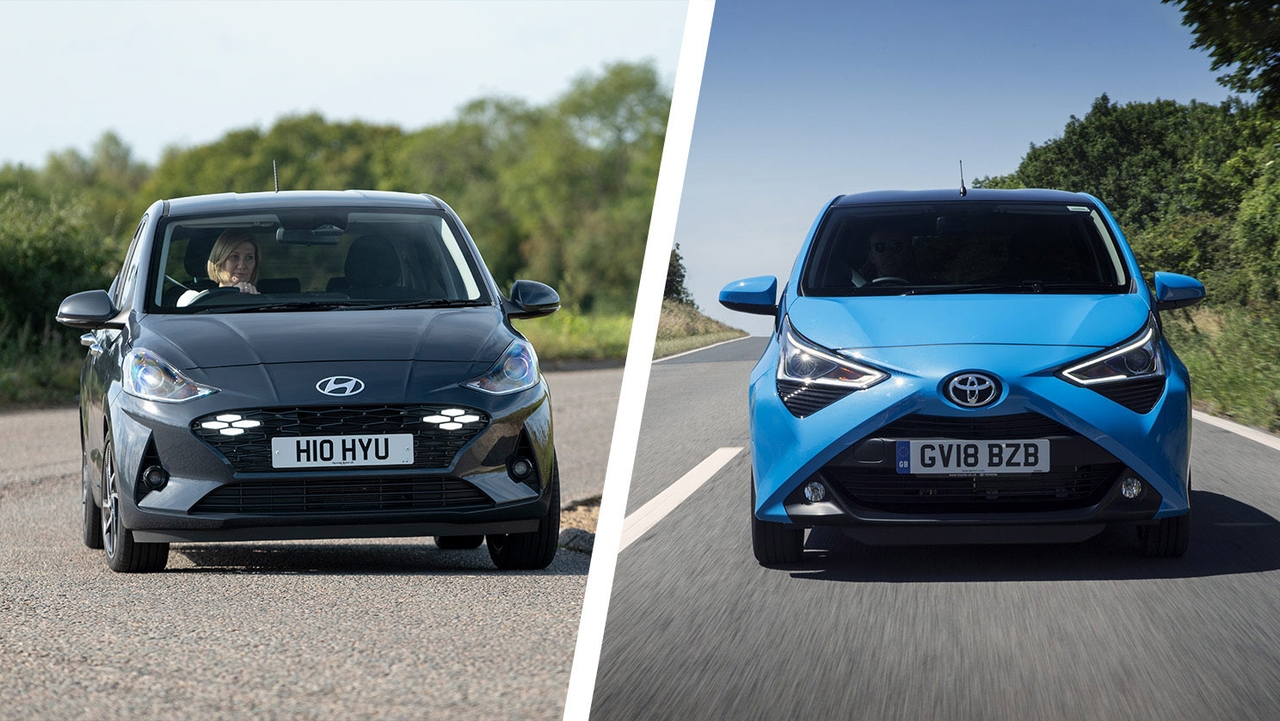
You'll find big, bold styling on these compact cars, helping them stand out despite their small stature. The Hyundai has swoopy styling up front and deep creases down its bodywork which, to our eyes, looks a little fussy. You couldn't accuse it of being a shrinking violet, however, especially if you choose one of the brighter paint shades, so you're unlikely to lose it in a car park.
The Aygo's been around for a little longer than this generation of i10, but it still looks fresh thanks to its sharp styling, eye-catching 'X' motif on the front end and neat 'floating' roof design – something the i10's actually mimicked with its blacked out C-pillar. A mid-life update brought a refreshed front bumper to the little Toyota with neat contrast-coloured triangular panels below the headlights. Of course, beauty is in the eye of the beholder, but we think the Aygo's exterior styling is a little more cohesive overall.
Interior and practicality
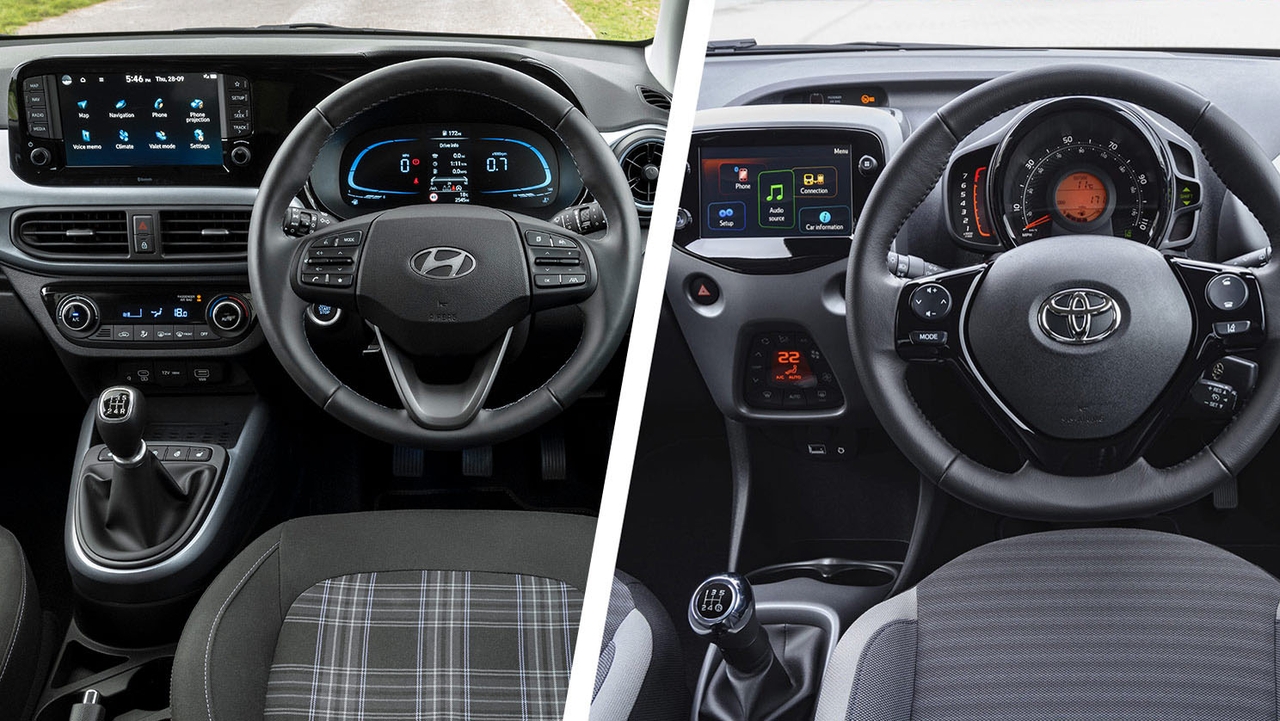
You're not going to sit in either car here and be fooled into thinking you're sat in a Mercedes. There's plenty of durable black plastic in the lower panels and upper dash portions which feel scratchy to the touch. However, you'll spot that Hyundai has put in a few more soft-touch panels here and there – most notably, a large piece on the dashboard, providing a somewhat-plush-feeling foundation for the modern-looking dash-top pod that houses the infotainment system and dials. The Aygo has a protruding shield-shaped panel that includes the screen and climate controls, and a simple pod with speed and engine revs sat in your eyeline.
Like a lot of affordable cars, entry-level models don't include an infotainment system at all, although the i10 still includes basic Bluetooth connectivity. Once equipped with their screens, it's clear that the Hyundai's system is more sophisticated – its graphics are sharper, there's more functionality and the responses to your touch are noticeably quicker. Nevertheless, the Aygo's setup is easy to use thanks to its paired-back layout, and you get Apple CarPlay and Android Auto on mid-range X-Trend cars and up – although they're included as standard on any i10 equipped with a screen.
The most noticeable difference between these two is in the raw amount of cabin space they offer. Both cars are among the smallest models on sale but the i10 makes much smarter use of its diminutive frame. You'll find just enough space for tall adults in the Hyundai's rear seats, and a boot that can handle a couple's weekly shop without breaking a sweat – impressive for a small car. The Aygo's rear seats, on the other hand, are a tight fit even for children or short adults, and front seat occupants will probably have to shuffle forward to fit rear passengers in. The boot, similarly, is small and awkward to access thanks to the slightly small glass panel boot lid.
Engines and performance
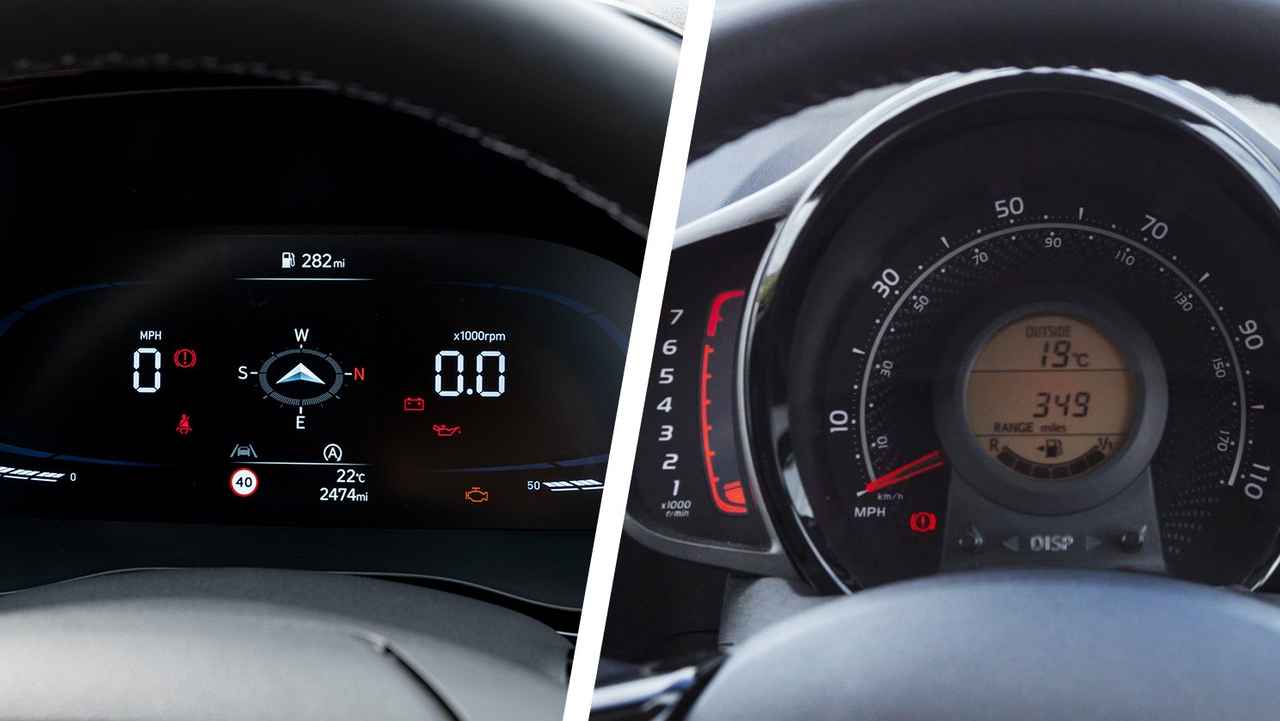
You get a lot more choice in the Hyundai's engine lineup. The entry-level choice is a 1.0-litre non-turbo petrol with 67hp and, while you'll have few complaints about its manners around town, it does feel quite underpowered at motorway speeds. You have the option of a 1.2-litre model with 84hp but this only somewhat addresses the lack of high-speed oomph. Right at the top of the range, however, is our favourite engine – a 1.0-litre turbo petrol with 99hp. This feels positively punchy around town and the extra grunt means it's far more relaxed at high speeds with scarcely any real-world economy penalty.
Aygo buyers get just one engine choice – a 1.0-litre non-turbo petrol. With 72hp on tap, performance is pretty sedate and you'll have to work the engine quite hard to get up to motorway speeds. Despite its relative weediness, Toyota's 1.0-litre feels a little stronger than Hyundai's entry-level 1.0-litre equivalent so, if you're not shopping the i10's upgraded engine options, it's the Aygo that's marginally more muscular.
We'd advise choosing the manual gearbox option regardless of which car you choose. Both can be optioned with automatic gearboxes but they're the automated-manual variety that are jerky and dim-witted in practice. You'll be better off with rivals like the Skoda Fabia, Honda Jazz or Toyota Yaris if you're after a small car with an automatic 'box.
Driving
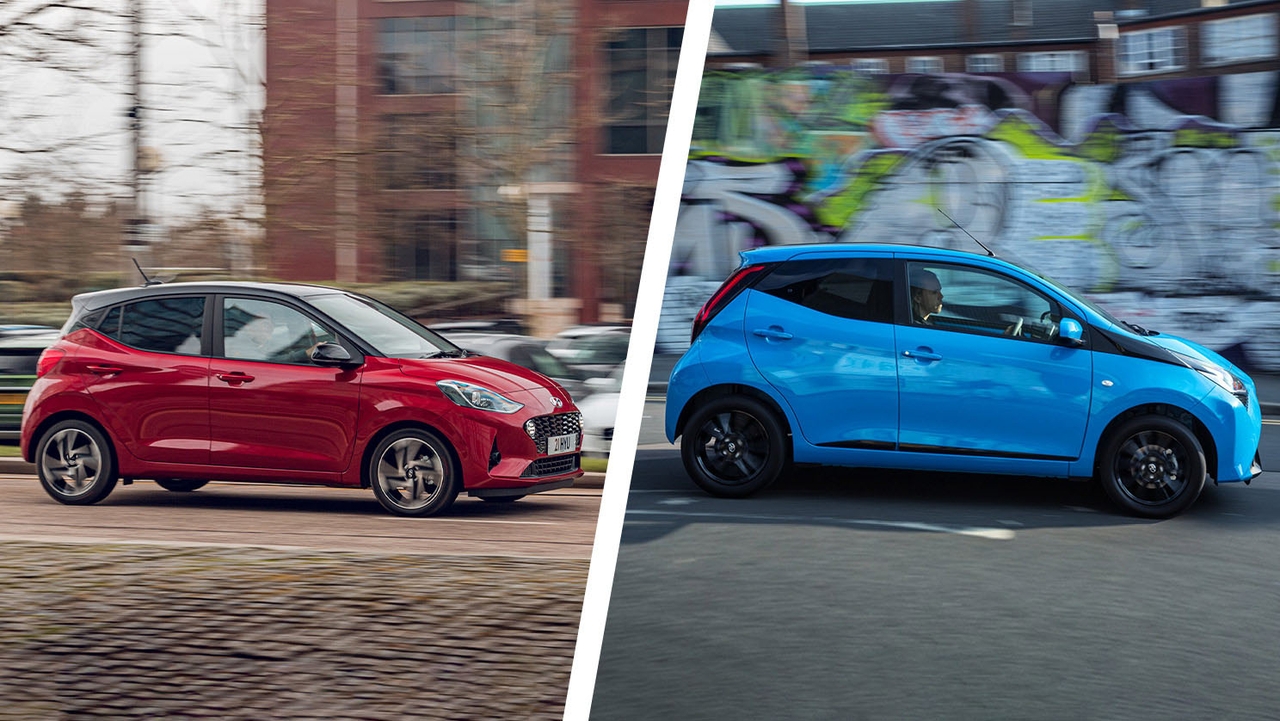
The i10 doesn't just drive well for a small car – it drives really well full stop. Low weight, a planted stance and a reactive front end means the little Hyundai changes direction like a fish in water, and the light, intuitive controls make it super-easy to predict how the car's going to respond to your inputs. Plus, all that athleticism doesn't really compromise the ride quality – often an Achilles' heel of very short cars – with the i10 doing a commendable job of absorbing bumps and smoothing out vibrations.
Drive at urban speeds and the Toyota is unlikely to offend, but the weighting of the steering and the snappiness of the gear shifter feel wooden compared to the Hyundai's delicacy. Things don't get much better as speeds build, either. The Aygo sends more bumps into the cabin and more noise to your ears – whether that's suspension thumps or the raspy thrum of the car's little engine battling to get up to speed.
Value and reliability
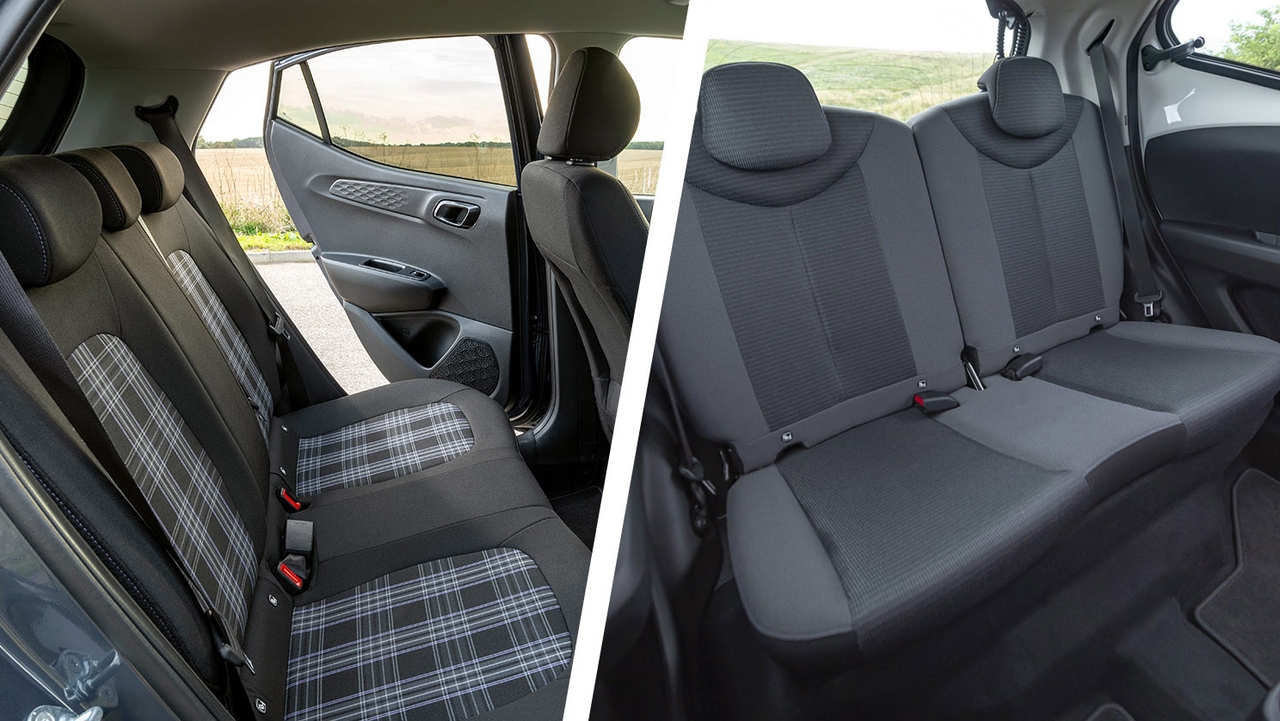
Pricing is ultra-competitive at this end of the market and, across the board, you'll pay less for an Aygo than you will for an i10 with similar specs, age and mileage. Mid-range X-Play Aygos come well equipped with air conditioning, a touchscreen and a reversing camera equipped as standard, with Apple CarPlay/Android Auto added on X-Trend models. Entry-level i10s are sparse but mid-range SE Connect includes most equipment you'd want, while Premium models get luxuries like heated front seats and a heated steering wheel.
Both Hyundai and Toyota have good reputations for reliability and, considering these are two of their cheapest and simplest models, you shouldn't have to worry about any serious failures if you keep up with scheduled maintenance. You always have the option to purchase an extended warranty when you buy either car new or used, which protects you for longer against the cost of unexpected repairs.
Which is best?
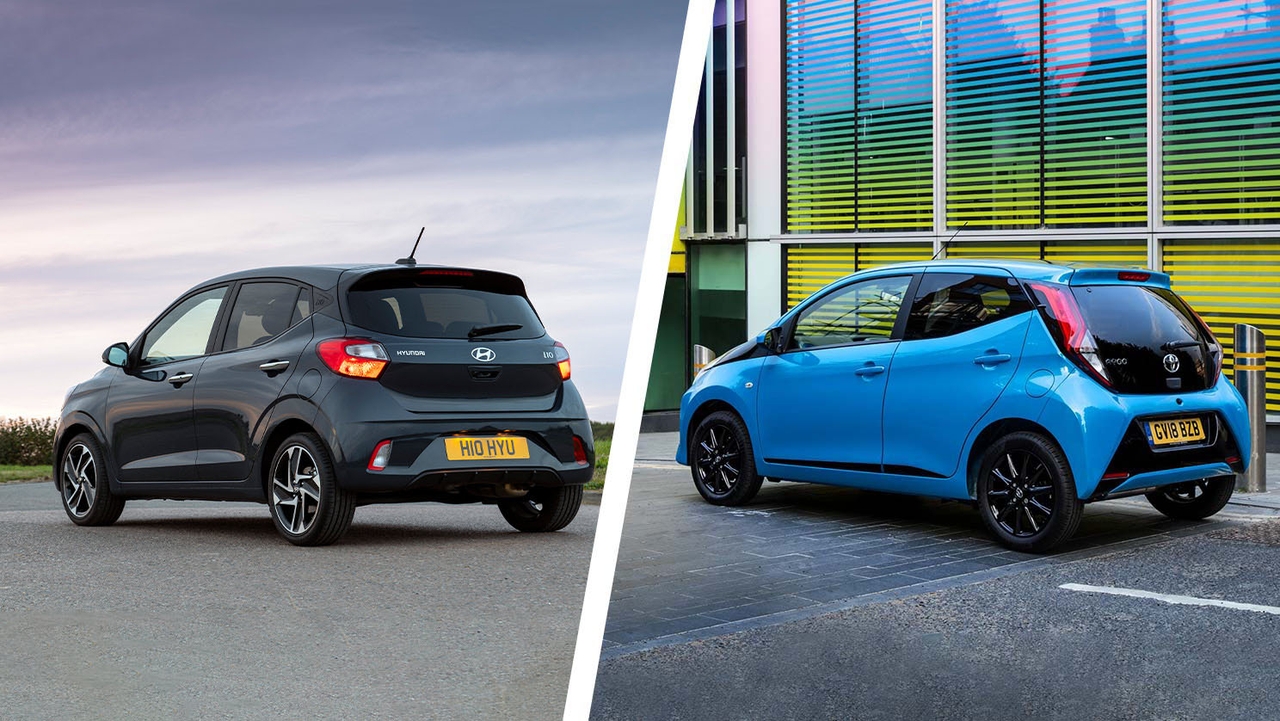
Your answer here may depend most significantly on the budget you have available. You can't argue with hard numbers and, in that respect, the Aygo is the more affordable car of the two, so you'll get a newer or lower mileage example for the same money.
That said, we think the i10 is generally the better car across most measurable categories. It's more fun to drive, more refined on long journeys and more practical, despite being essentially the same size as the Aygo. Your budget will just have to swell a little if you want to get an i10 that's a comparable age, mileage and spec to an Aygo.
Shop hundreds of used Hyundai i10 and used Toyota Aygo cars at Motorpoint. If you want to broaden your search, check out the best small cars you can buy.

































